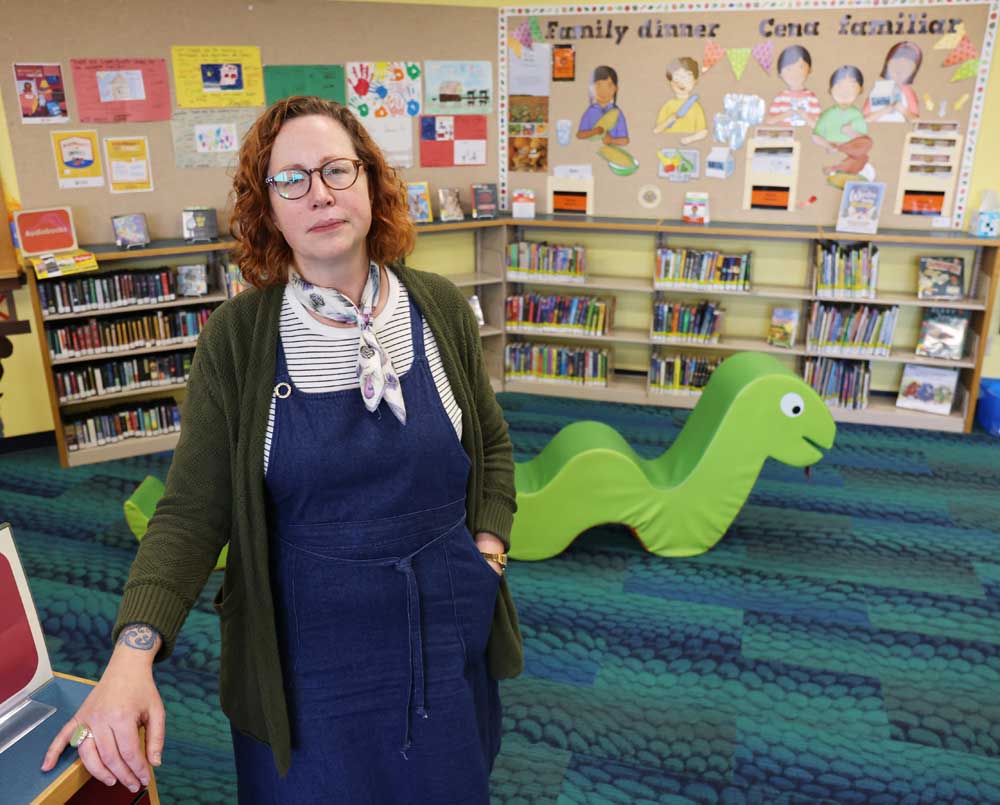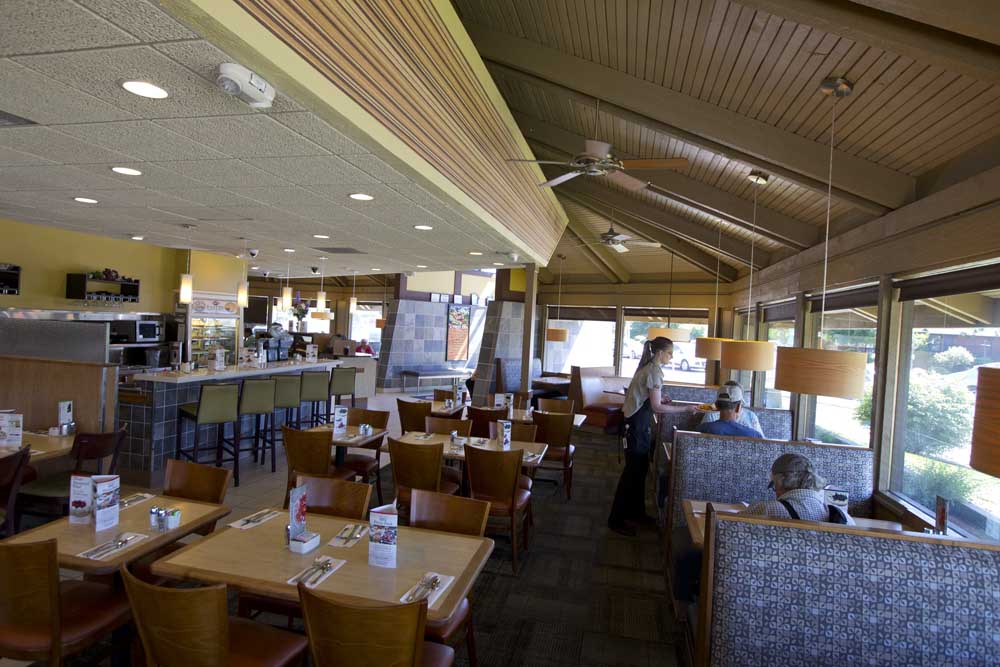Demands to label, move LGBTQ children’s books flood Crook County Library amid warnings
Published 5:00 am Wednesday, December 7, 2022

- April Witteveen, Crook County Library director of library services, stands in the children’s section of the library in Prineville on Tuesday. Crook County Library has been under community pressure to label children’s books that reflect the LGBTQ community and remove them from the children’s section, an effort that concerns advocates of intellectual freedom.
Crook County Library is facing a deluge of demands to label children’s books that reflect the LGBTQ community and remove them from the children’s section, an effort that is raising concerns among advocates of intellectual freedom and regional library officials.
Should the library’s board of trustees bend to the mounting pressure in its upcoming meeting Thursday, it could be at risk of losing thousands of dollars in contracts, resources, grant funding and its official designation as a public library in Oregon, according to state and local officials.
Meanwhile, April Witteveen, director of library services, is resigning to take a job as the library director at Oregon State University-Cascades in Bend. Witteveen said Monday she is taking the job to be closer to her family. But she acknowledged the recent controversy is partly why she is leaving the library where she has worked for two years.
“My mental health has taken a hit,” said Witteveen, who was directed in the November board meeting to create a proposal to create a special shelf for books that reflect the LGBTQ community.
In recent months, dozens of community members have filled a series of heated board meetings at the library, with some people calling on the board to move LGBTQ-related books to specific areas of the library and away from the children’s area. Other people have argued the board needs to keep these books available for any child who chooses to access them, videos and interviews show.
“I’m not against the parents from checking them out and reading them to their children in their home if they so want to, but don’t expose other children to values that are against their family,” said one woman in the last meeting, who also described the books as containing “borderline child pornography.”
Witteveen said her front desk staff has been called “pretty awful things” by community members in recent months. Some have falsely accused staffers of curating sections of the library with children’s books that include sexually explicit material and pornography, she said.
Witteveen said she, too, has been targeted on social media and that people have spread misinformation, calling her professional reputation into question. The pressure has brought feelings of “general overall frustration, sadness and anger that this is even happening right now,” Witteveen said.
“It’s just kind of surreal,” she said.
The Crook County Court, which appoints members of the library board, hired an attorney to explain what the library could do under the Constitution. The attorney said the board could not remove, label or restrict access to books but could place them in a special area, county Judge Seth Crawford said Monday.
But labeling LGBTQ books and moving them to a special section could place Crook County’s resource sharing agreement with the Deschutes Public Library System at risk, according to Todd Dunkelberg, director of the Deschutes library system. He described the proposed changes as “basically stigmatizing a collection.”
“The steps they’re taking definitely fly in the face of intellectual freedom standards that libraries uphold,” Dunkelberg said. “A public library is for all people, and to exclude certain people is definitely a large concern for us.”
Through the agreement, Crook County gets access to Deschutes library’s e-book and audio collection and borrowing rights to other books. The software also contains the Crook County Library’s patron and materials records.
If the agreement was severed, the Crook County Library could lose access to Deschutes library’s materials and a system to manage them, which could cost $100,000 to replace and $50,000 annually to maintain, according to emails obtained by The Bulletin.
Buzzy Nielsen, program manager for the State Library of Oregon, said the proposed changes could also prompt the state to investigate whether Crook County was in violation of Oregon laws that require libraries to meet and uphold standards of intellectual freedom, a right enshrined under the First Amendment. This could result in the library losing its official designation as a public library in Oregon, Nielsen confirmed, which means the county would not be able to apply for federal grants.
The Crook County Library receives more than $9,000 in federal grant funding each year for its early literacy and summer reading programs, Nielsen said. Other grants available for the library to apply for can range upwards of $100,000, Nielsen said.
Jennifer Fischer, the children’s services librarian specialist at the Crook County Library, said she is concerned about the prospect of losing the funding and resources. She said of these proposed changes: “Financially, the cost to the library is much greater than the benefit, in my opinion.”
Crook County’s library “is not in the business of indoctrination. We are in the business of information,” Fischer said. “If we have books showing one side, we have to have books that reflect the other side … We’re not pushing any particular viewpoint on any one person. We’re providing materials for people who need them.”
The debate comes as libraries across Oregon and the country have endured growing harassment and pressure amid heightened tensions over children’s books about race and gender. The number of attempts to remove or restrict materials in Oregon libraries and schools more than doubled from 2021 to 2022, from 20 reported challenges to 54, according to a 2022 report from the Oregon Intellectual Freedom Clearinghouse.
On Monday, the Oregon Library Association and the Oregon Intellectual Freedom Committee issued a joint statement about the Crook County Library.
The groups described the effort to label and remove books as part of “a nationally coordinated campaign that threatens the core American values and First Amendment rights of free expression and free access to ideas by muting the voices of historically marginalized groups, just as these communities are finally gaining fair representation in library collections.”
Emily O’Neal, chair of the Oregon Library Association’s Intellectual Freedom Committee, said attempts to label and remove children’s books that reflect the LGBTQ community reflect the broader trends to restrict intellectual freedom happening across the country. “To say, I disagree with this idea so therefore it shouldn’t exist, is just going to further exasperate our deeply divided communities,” she said.
“The very best way that we can begin to mend this divide is going to be for us to learn why somebody feels differently than you do,” O’Neal said. “In my ideal world, we would all read the books that we disagree with, because that’s how we’re going to have conversations about ideas that we disagree with.”
The upcoming meeting will be held at 5:15 p.m. in the library’s Broughton Room.






